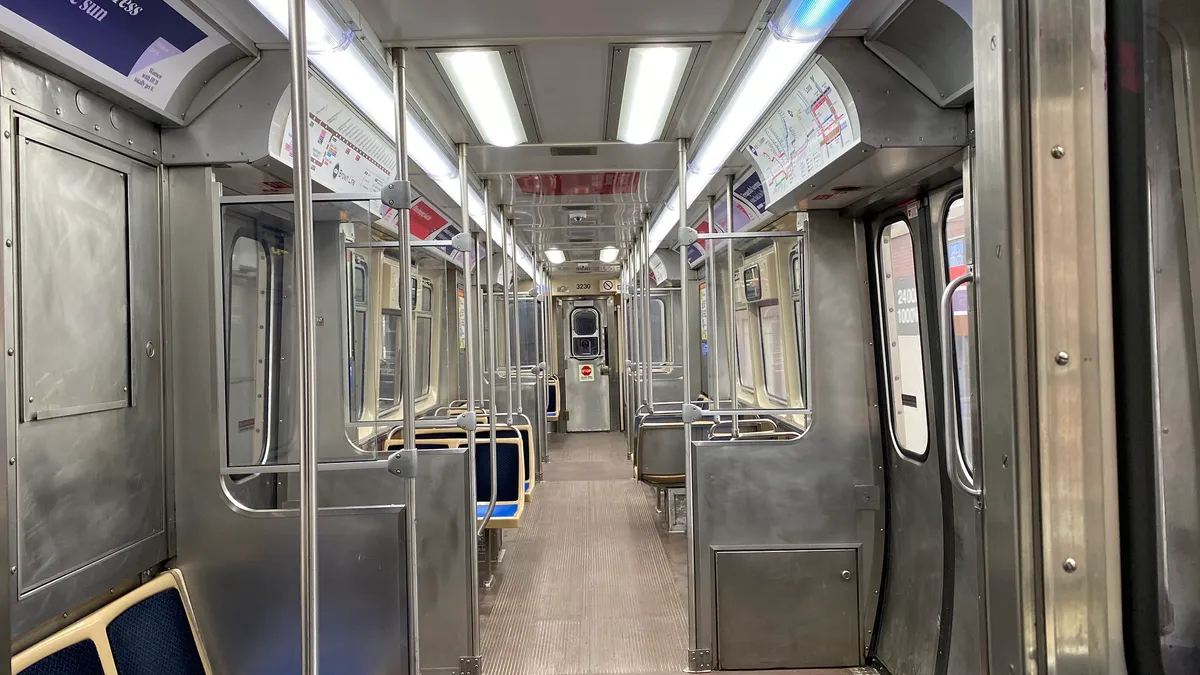Dive Brief:
- Bloomberg Philanthropies and the National Association of City Transportation Officials (NACTO) launched the Transportation Response Center, an online resource to give mayors and other leaders real-time information on the transportation strategies cities are deploying to adapt to the new coronavirus.
- The resource hub will serve as a repository of "actionable, adaptable practices" to protect residents from COVID-19 such as efforts to convert parking spaces into pick-up zones for food from restaurants; to allow rear-door bus boarding or waive transit fares; to open certain roads for pedestrians and bicyclists exclusively.
- The hub will also have safety information on how agencies can keep workers protected; how to provide safe rides to testing facilities; and how to publicly communicate new transit policies.
Dive Insight:
This is the latest effort by Bloomberg Philanthropies to help city governments deal with the worst impacts of the coronavirus and make decisions at the local level.
When the coronavirus outbreak began spreading across U.S. cities, the organization launched its COVID-19 Local Response Initiative, which looks to virtually connect city leaders to share best practices and other lessons learned. Under that initiative, Bloomberg Philanthropies partnered with the National League of Cities (NLC) to build the COVID-19: Local Action Tracker, which hosts searchable data on policy actions being taken locally to protect residents and surrounding regions from spreading the disease.
The organization also hosted a virtual convening of mayors as part of the initiative, and partnered with the U.S. Conference of Mayors (USCM) to assist cities in applying for federal aid and reviewing respective procurement and contracting requirements.
This transportation-focused effort continues that emphasis on local action and local recovery, especially with transit serving as a crucial lifeline to get people to work, healthcare and other essential services.
"In an incredibly challenging and uncertain environment, cities are taking rapid action to ensure that healthcare, grocery, and other essential workers can get where they need to go and residents can safely access needed goods and services," Corinne Kisner, NACTO’s executive director, said in a statement released by Bloomberg Philanthropies.
And it comes with transit agencies having to deal with the "new normal" of plummeting ridership as many riders are issued with shelter-in-place orders or urged to telecommute as part of social distancing policies. "The COVID-19 pandemic represents the nation’s first 50 state disaster that will spare no community," Bloomberg Philanthropies wrote in a blog post.
Regardless of these policies, transit systems must continue to function for people to get to their essential jobs or other functions, leaving some agencies to worry that they may face financial ruin due to lost revenue. However the just-passed $2 trillion federal stimulus package contains $25 billion for transit agencies to continue operations and protect jobs, which should offer relief for beleaguered systems.
To keep up with all of our coverage on how the new coronavirus is impacting U.S. cities, visit our daily tracker.












